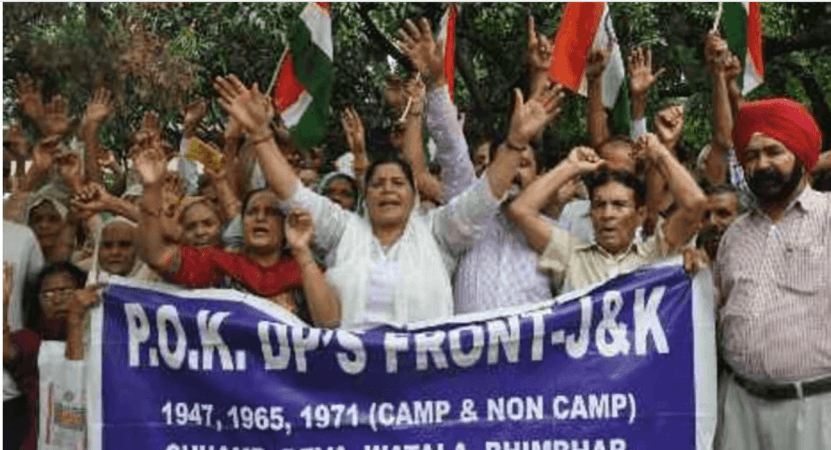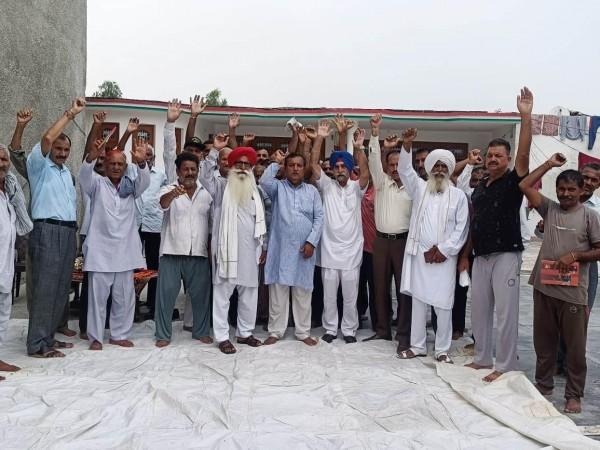
Although the report of the Cabinet Sub-Committee constituted by the Jammu and Kashmir Government on reservations is yet to be made public, another controversy has erupted in the Union Territory as displaced persons from Pakistan-occupied Jammu and Kashmir (PoJK) have raised the demand for Scheduled Tribe (ST) status.
PoJK refugees living in different parts of Jammu province argued that they are also part of the ethnic Pahari tribe, and therefore there should be no discrimination between them and those residing in Poonch, Rajouri, and north Kashmir.
Refugees from PoJK, settled in the plains of Jammu province, pointed out that their community members who were rehabilitated in the twin border districts of Poonch and Rajouri after Partition are entitled to ST status, but those living in the plains have been singled out without any logical reason.
"Although we have been living in different parts of Jammu province since our displacement following Partition in 1947, we too belong to the ethnic Pahari tribe. There is no reason to exclude us from the benefit of Scheduled Tribe (ST) status," Gurdev Singh, president of the Jammu and Kashmir Sharnarthi Action Committee (JKSAC), told The International Business Times.

"ST status has been granted to the ethnic Pahari tribe, but those living in the plains of Jammu have been denied this right," regretted another PoJK refugee leader, Shashi Kant Khajuria.
"As all PoJK refugees are Pahari-speaking, we are demanding that the community be treated on par with the ethnic Pahari tribe," Khajuria told The International Business Times. He added that a mobilization campaign has been launched to create awareness among PoJK refugees against this "glaring discrimination."
"The selective granting of ST status, currently limited to displaced persons from the Rajouri-Poonch region, is discriminatory and unjust," he argued.
"The displaced community, whose roots trace back to the Partition of 1947, has endured immense hardships since its forced migration," Khajuria said, adding, "Our community shares the same ethnic, cultural, and socio-economic background as those from the Rajouri-Poonch region, yet it is surprising that we are excluded from the benefits of ST recognition."
Gurdev Singh further regretted that Scheduled Tribe certificates are not being issued to PoJK refugees, despite the fact that they are also Pahari-speaking like the residents of Poonch and Rajouri.
"Certain vested interests within the concerned administrative department are deliberately creating confusion and misleading the government by misinterpreting the rules/laws, leading to further complications for the administration as well," he alleged. "It is highly discriminatory that PoJK refugees residing in Poonch and Rajouri have been granted ST status, whereas their relatives in Jammu, Samba, Kathua, Udhampur, and elsewhere have been denied this legitimate right."

Background of PoJK Refugees
During the 1947 Pakistani raiders' attack, followed by widespread massacres, hundreds of Hindu and Sikh families from Poonch, Muzaffarabad, Kotli, and Mirpur districts of PoJK migrated to safer places.
Approximately 50,000 families initially came to India as refugees, and over the years, their population has grown to over 12 lakh, with around 10 lakh currently residing in Jammu. Despite their long-standing presence and significant contributions to the region's socio-economic fabric, PoJK refugees argue that they remain marginalized and deprived of the rights and privileges extended to others in similar circumstances.
These refugee families were officially designated as Displaced Persons from Pakistan-occupied Areas of J&K (PoJK DPs) under Order No. 1476-C of 1950, dated 16.12.1950, yet they have continued to suffer due to neglect and bureaucratic technicalities. The government also failed to register those displaced families who had taken shelter outside J&K.
ST status granted on Paharis in 2024
On February 6, 2024, the Lok Sabha passed the "Constitution (Jammu and Kashmir) Schedule Tribes Order (Amendment) Bill, 2023".
After the passing of this bill, the "Pahari ethnic group," "Paddari Tribe," "Koli," and "Gadda Brahman" communities were included in the Scheduled Tribe List of the Union Territory of Jammu and Kashmir.



!['Valentine's Week in Parliament'? : Saugata Roy, June Malia's cosy conversation amid house session goes viral [Watch] 'Valentine's Week in Parliament'? : Saugata Roy, June Malia's cosy conversation amid house session goes viral [Watch]](https://data1.ibtimes.co.in/en/full/828484/valentines-week-parliament-saugata-roy-june-malias-cosy-conversation-amid-house.jpg?w=220&h=135&l=50&t=40)









!['Valentine's Week in Parliament'? : Saugata Roy, June Malia's cosy conversation amid house session goes viral [Watch]](https://data1.ibtimes.co.in/en/full/828484/valentines-week-parliament-saugata-roy-june-malias-cosy-conversation-amid-house.jpg?w=220&h=138)

!['Valentine's Week in Parliament'? : Saugata Roy, June Malia's cosy conversation amid house session goes viral [Watch]](https://data1.ibtimes.co.in/en/full/828484/valentines-week-parliament-saugata-roy-june-malias-cosy-conversation-amid-house.jpg?w=220&h=135)

